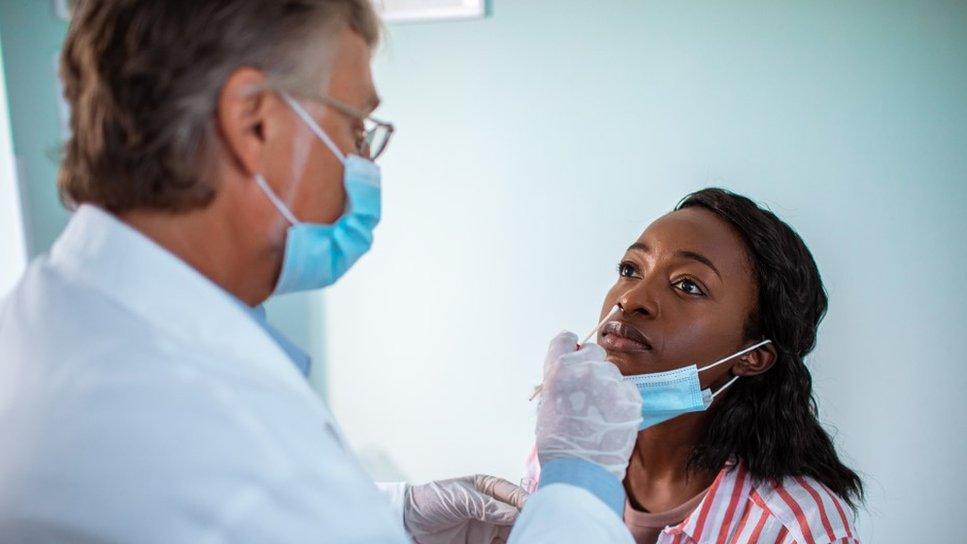Covid-19: Further NI Covid restrictions 'not necessary'
- Published
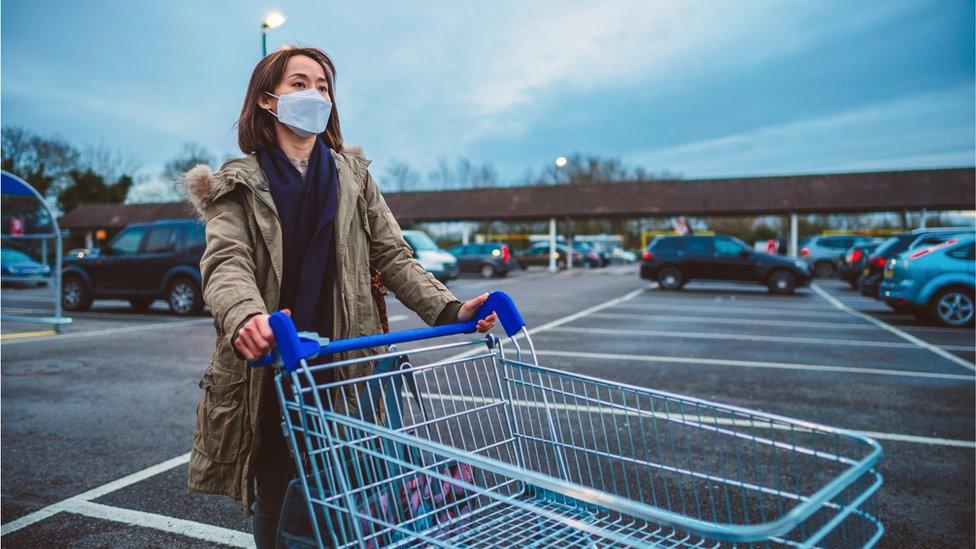
A plan to tighten controls around the wearing of face coverings has been scrapped
No further Covid restrictions are currently necessary in Northern Ireland despite a surge in Omicron cases, First Minister Paul Givan has said.
Mr Givan said a plan to tighten controls around the wearing of face coverings has also been scrapped.
But Deputy First Minister Michelle O'Neill denied the plan had been completely axed.
"We haven't decided it is not going to happen but we have found it very difficult to make it work," she said.
She added that ministers will continue to explore ways to encourage more people to wear face coverings
The executive was briefed by Health Minister Robin Swann and his officials on the spread of Omicron.
Ministers were told that cases of Covid-19 in the community in Northern Ireland have reached an all-time high and PCR testing reached capacity this week, leading to the changes in testing rules.
On Thursday, the Department of Health reported four more coronavirus-related deaths and 6,877 positive cases.
It brings the total number of Covid-19 deaths it has recorded in Northern Ireland to 3,002.
'Recognised problems of face coverings policy'
The executive had planned to remove some exemptions on face coverings and place the onus on the individual to provide medical proof on why they cannot wear one.
But Mr Givan said ministers had agreed to suspend the planned policy "indefinitely" and that "no business should be asking anyone to provide proof".
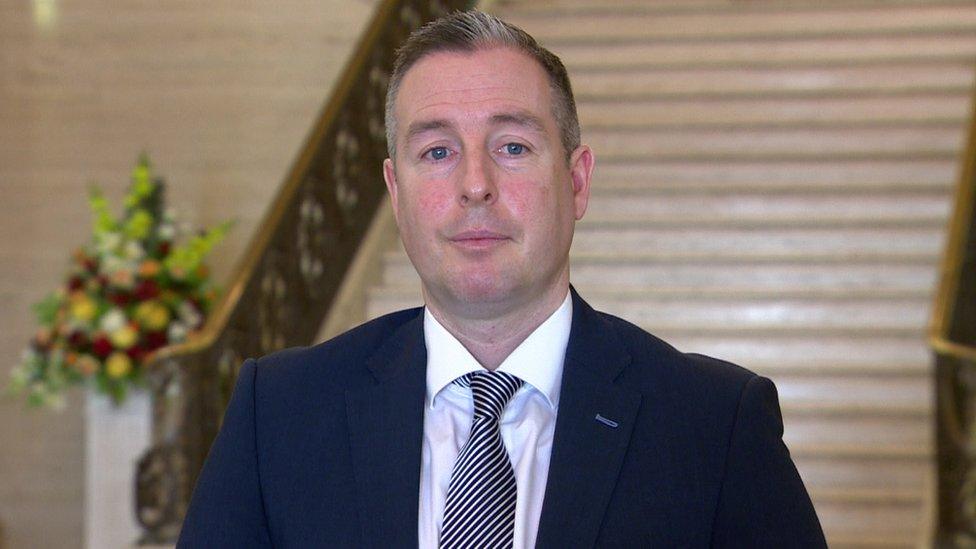
Paul Givan said Northern Ireland was not seeing the same increase in people requiring critical care as in previous Covid waves
He added ministers had been advised previously that GPs would provide the "certification" needed for exemptions but they are now reluctant to do so because of the "huge pressures" they are currently under.
"I think it is right, having recognised the problems this policy was creating, we have acted very quickly in terms of suspending this policy and I would urge the public to stop contacting their GPs seeking these exemptions," he said.
"Yes, businesses should be encouraging people to wear face coverings but they should not be asking for proof as that is a policy which this executive has suspended."
Education minister criticised over schools support
Mr Givan also said schools would not be closed "in terms of a universal approach".
However, Ms O'Neill criticised his DUP colleague, Education Minister Michelle McIlveen, for failing to bring forward more measures to support schools to stay open during the current crisis.
She said Ms McIlveen needs to do more to meeting the challenges facing schools with so many staff self-isolating.
BBC News NI understands the assembly will be recalled early on Monday, with MLAs able to question the education minister on what action she is taking in schools.
It comes after a Sinn Féin petition backed by the SDLP and Alliance and approved by assembly Speaker Alex Maskey.
Some teaching unions have expressed concerns about staff absences from classrooms and securing substitute cover, due to the surge in Omicron cases.
On Tuesday, Ms McIlveen said keeping schools open remains a top priority.
Omicron household transmission 'high'
Speaking to Stormont's health committee on Thursday, Northern Ireland's chief scientific adviser said it would be a "major surprise" if there were not substantial numbers of Covid cases among schoolchildren after term resumes.
Prof Ian Young said that before Christmas the largest number of cases were in under-18s.
Once schools broke-up, the rise in cases has been substantial in all age bands, with the exception of under-18s.
"Generally it will be a relatively mild illness with a small number of exceptions but the rate of household transmission is very high with Omicron and once a child becomes infected and is at home, there is a high risk of transmission to parents, grandparents or wider members of the family," Prof Young added.
The committee also heard that the number of active Covid-19 outbreaks in care homes is 179.
Northern Ireland's chief medical officer, Sir Michael McBride, said it was important to put this into context and while there was no cause for complacency, he would not wish people to become alarmed by the numbers.
Sir Michael said something in the region of three quarters of the outbreaks "involve staff members or care partners as opposed to residents".
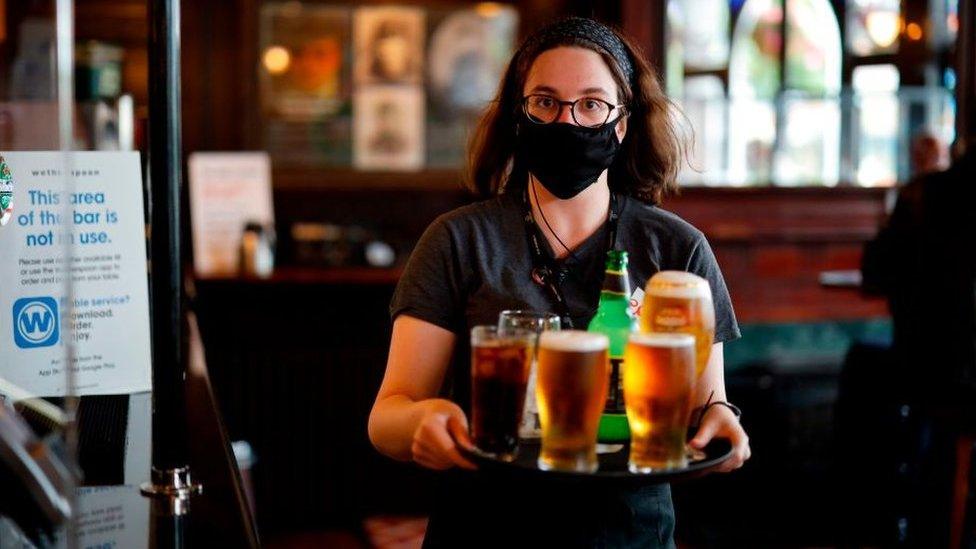
A £40m support package for hosptiality has been announced but other sectors say they also need help
Last week, ministers agreed to cut self-isolation rules in a bid to manage workforce pressures due to the Omicron variant.
Finance Minister Conor Murphy previously announced a £40m scheme for hospitality businesses, which are already operating under some tighter restrictions.
Other sectors such as tourism and travel have called for extra resources from Stormont.
The executive is limited in what support it can provide, without further interventions from the Treasury in Westminster.
Mr Givan has said he hopes extra money can be reallocated from Stormont departments for Covid support through January's monitoring round.
Winter fuel payment scheme
Thursday's meeting comes as a new emergency winter fuel payment scheme opens for applications.
Last month, the Department for Communities said £2m in funding would be available for extra emergency payments to help those most effected by rising costs.
About 20,000 households are expected to benefit from the scheme, which will run until 31 March.
Full eligibility criteria, along with the application process, has been published by the Bryson Charitable Group, external, which is helping oversee the operation of the scheme.
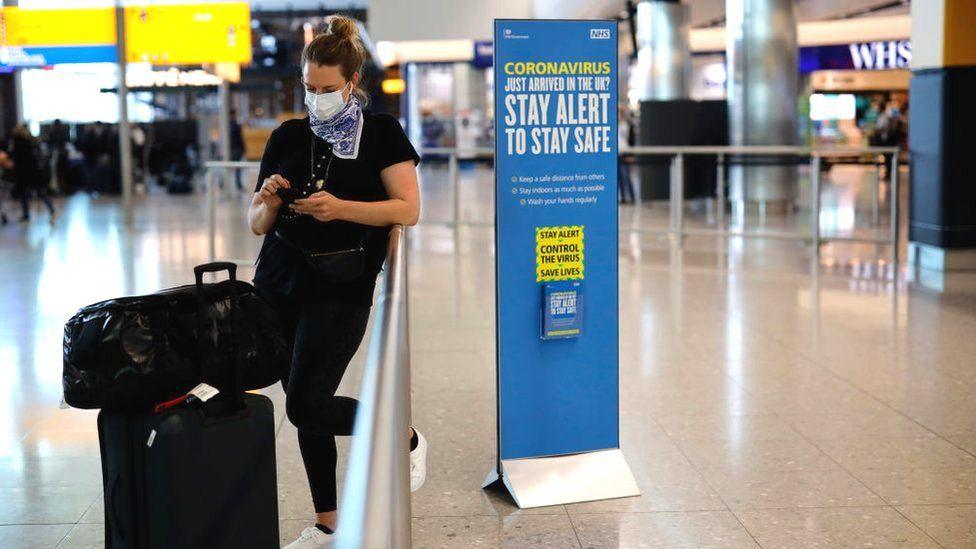
Some travel rules were introduced to prevent the spread of the Omicron variant
Meanwhile, the Department of Health has confirmed that a number of travel rules previously introduced to prevent the spread of the Omicron variant will now be removed, external.
Fully vaccinated passengers and under-18s will not be required to take a pre-departure test or self-isolate on arrival from 04:00 on Friday.
Passengers who are fully vaccinated will still be required to complete a passenger locator form and take either a lateral flow test or PCR test on or before day two of their arrival from Sunday 9 January.
Anyone with a positive lateral flow test will be required to book a free confirmatory PCR test and isolate. If the subsequent mandatory confirmatory PCR is negative, then the isolation period can end.

OMICRON SURGE: Variant spreading at exceptional pace
SELF-ISOLATION: You test positive - what next?
COVID PASSPORTS: How to get one and how to use one

Related topics
- Published4 January 2022
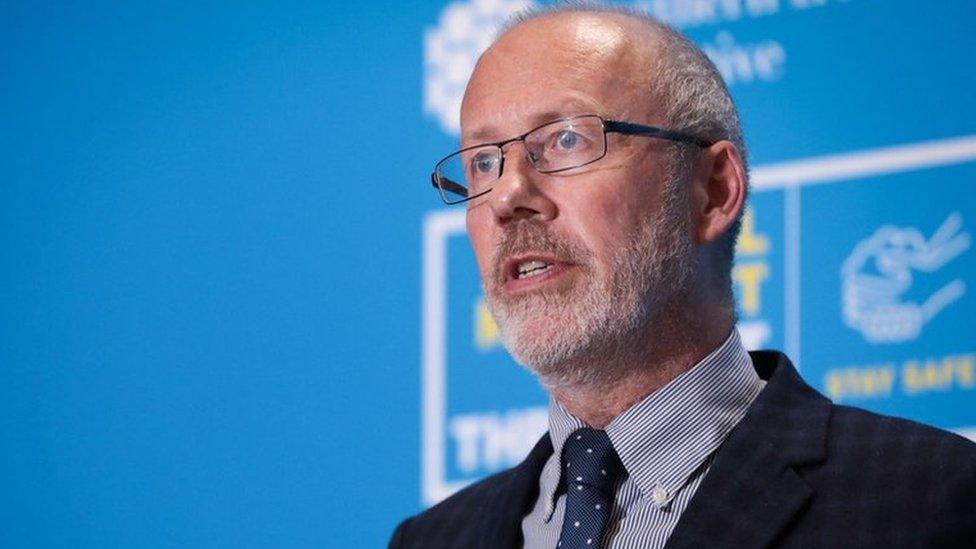
- Published4 January 2022
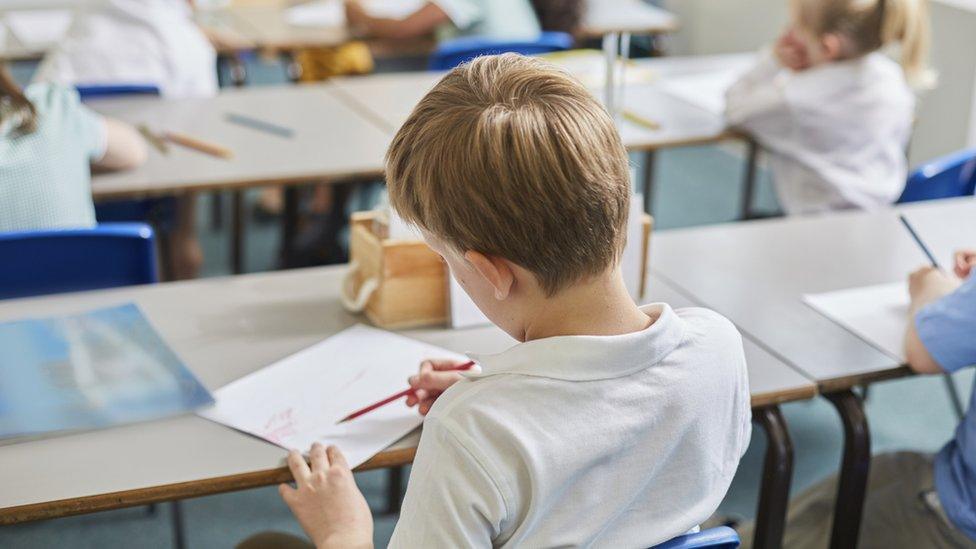
- Published5 January 2022
